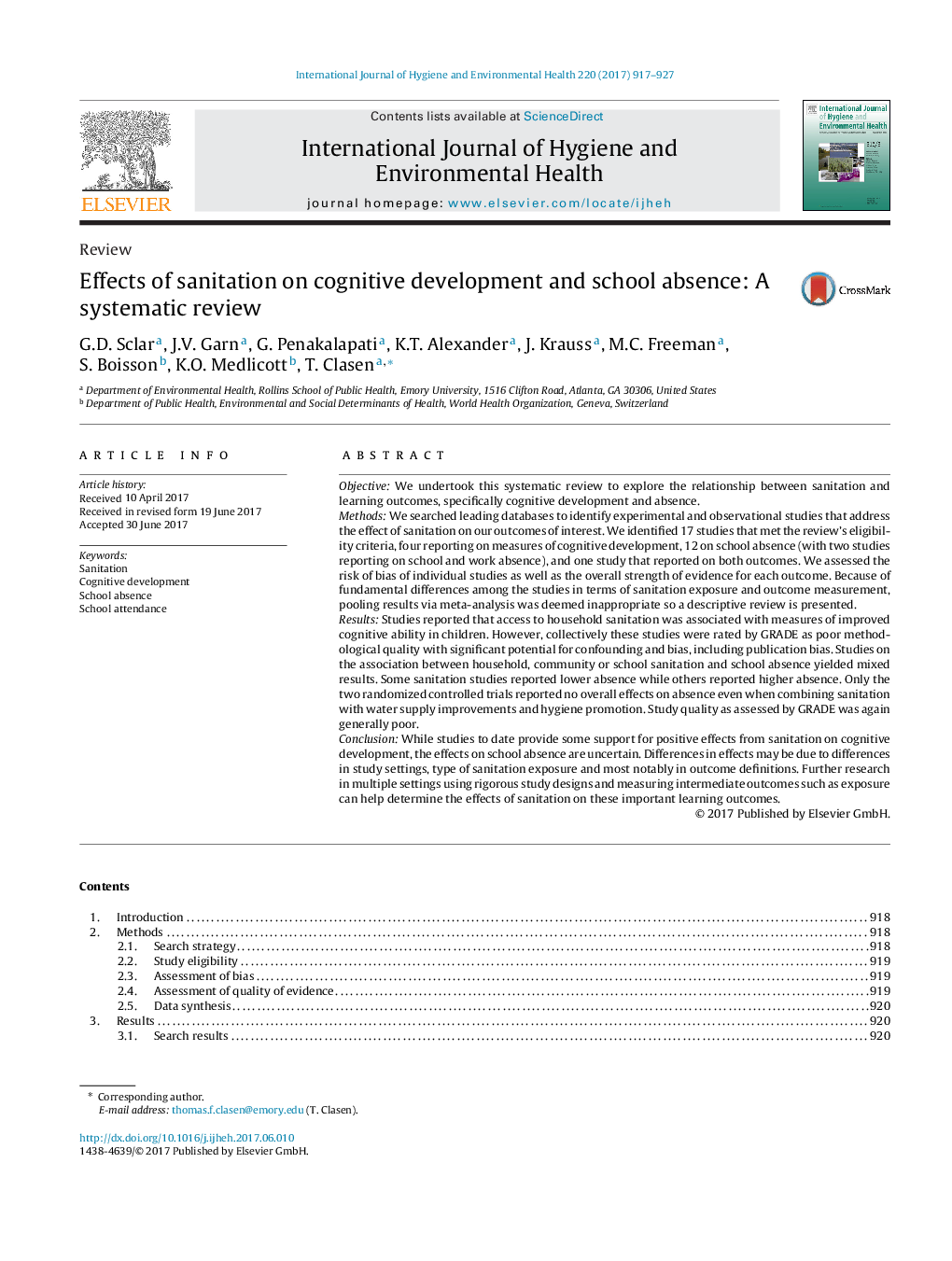| Article ID | Journal | Published Year | Pages | File Type |
|---|---|---|---|---|
| 5560469 | International Journal of Hygiene and Environmental Health | 2017 | 11 Pages |
ObjectiveWe undertook this systematic review to explore the relationship between sanitation and learning outcomes, specifically cognitive development and absence.MethodsWe searched leading databases to identify experimental and observational studies that address the effect of sanitation on our outcomes of interest. We identified 17 studies that met the review's eligibility criteria, four reporting on measures of cognitive development, 12 on school absence (with two studies reporting on school and work absence), and one study that reported on both outcomes. We assessed the risk of bias of individual studies as well as the overall strength of evidence for each outcome. Because of fundamental differences among the studies in terms of sanitation exposure and outcome measurement, pooling results via meta-analysis was deemed inappropriate so a descriptive review is presented.ResultsStudies reported that access to household sanitation was associated with measures of improved cognitive ability in children. However, collectively these studies were rated by GRADE as poor methodological quality with significant potential for confounding and bias, including publication bias. Studies on the association between household, community or school sanitation and school absence yielded mixed results. Some sanitation studies reported lower absence while others reported higher absence. Only the two randomized controlled trials reported no overall effects on absence even when combining sanitation with water supply improvements and hygiene promotion. Study quality as assessed by GRADE was again generally poor.ConclusionWhile studies to date provide some support for positive effects from sanitation on cognitive development, the effects on school absence are uncertain. Differences in effects may be due to differences in study settings, type of sanitation exposure and most notably in outcome definitions. Further research in multiple settings using rigorous study designs and measuring intermediate outcomes such as exposure can help determine the effects of sanitation on these important learning outcomes.
